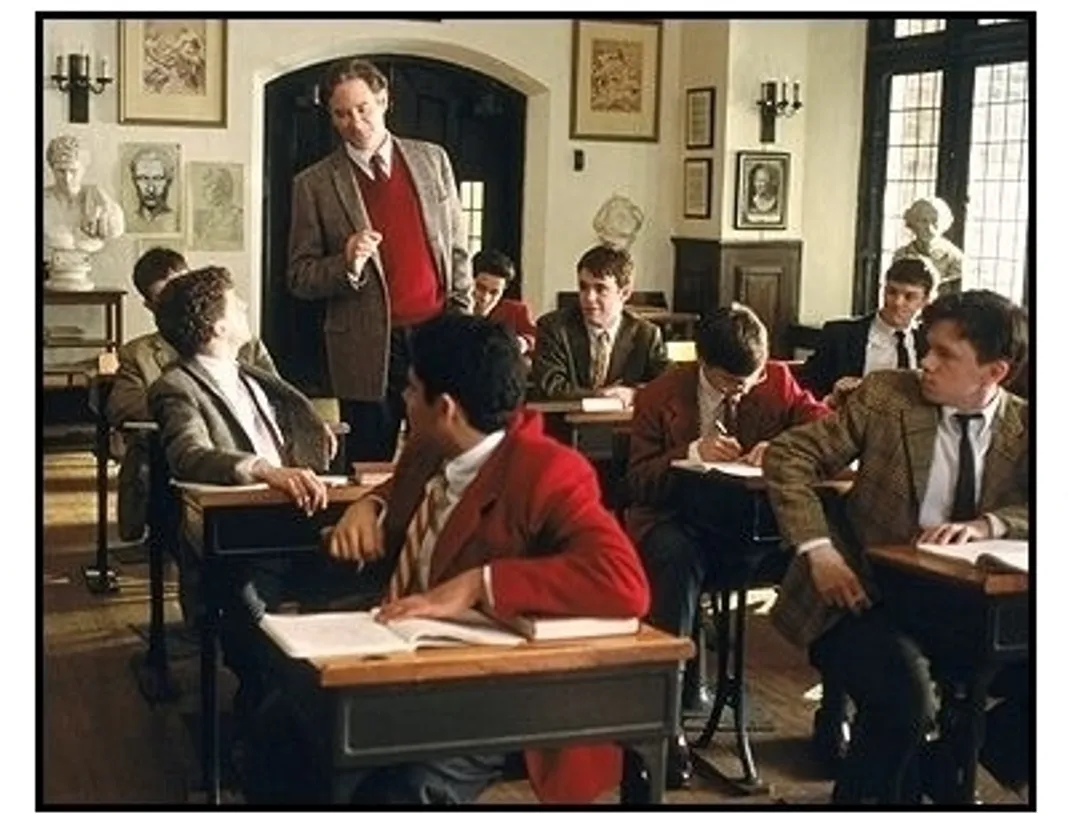In what can easily be described as a cross between Mr. Holland’s Opus and Dead Poets Society The Emperor’s Club follows the same generic format of a prep school drama in which the teacher forever changes the lives of his students. But the movie has a twist that makes it stand out. As a Classics professor William Hundert (Kevin Kline) has been shaping young mens’ lives for several years at St. Benedict’s School for Boys. He believes his Greek and Roman history class is more than just a lesson about the past it also teaches doctrines that can be applied to modern-day life. He faces his greatest challenge when in 1972 a young student named Sedgewick Bell (Emile Hirsch) joins the class. A boy full of bravado and arrogance Bell openly defies Hundert and his principles. Still Hundert sees potential in Sedgewick and after he thinks he has broken through with the boy gives him the ultimate chance to prove himself–except the professor bets on the wrong kid. The series of events that follow haunt Hundert for the next 25 years. Jumping to present day Hundert eventually gets a chance to redeem his faith in teaching when he attends a reunion of sorts with the boys of ’72 including the now extremely successful Bell who as it turns out hasn’t changed a bit. The others have grown up though and help Hundert realize the positive effect he truly had in their lives.
Whatever Kevin Kline chooses to do he is always good. Be it melodramatic (Life as a House) hysterical (A Fish Called Wanda) dark (The Ice Storm) or action-packed (Wild Wild West) Kline always brings a certain level of excellence to even the worst of films. In Emperor’s Club he continues the trend. Kline‘s Hundert isn’t Mary Poppins. He’s fallible and human but it’s very clear he adores what he does and believes wholeheartedly in the study of the Classics. It’s an understated performance played almost entirely across Kline‘s face. The joy and the anguish he shows as his students listen learn and sometimes fail says it all. It may not grant the talented actor an Oscar nod but it’ll rank up there as one of his better performances. Young Hirsch (The Dangerous Lives of Altar Boys) does an excellent job as well playing Bell. The actor deftly handles the conflicting emotions boiling inside Bell–ranging from the neglect Bell feels from his own father to his seeming apathy to the hints of regret over knowing he could have done things the right way. The other boys–particularly Jesse Eisenberg as Louis Rishi Mehta as Deepak and Paul Franklin Dano as Martin–give fine performances as the students who appreciate their teacher.
Director Michael Hoffman and Kline know each other well having worked together on several films including A Midsummer Night’s Dream and the comedy Soapdish. Hoffman knows how to capture Kline‘s essence succinctly. One of the more telling scenes in understanding Hundert is when he meets Sedgewick’s stern father a U.S. senator played by character actor Harris Yulin (Training Day). Hundert tells the senator he hopes to help mold these young men into upstanding citizens–to which the senator replies “It’s not your job to mold my son; I’ll do that.” Of course this gives you a little insight into Sedgewick’s upbringing but Hoffman wants us to know the senator is dead wrong. Teachers do shape us whether they think they do or not. Even if you feel like you’ve sat through this class many times before and in some cases seen it conducted by a better teacher (i.e. the two films mentioned in the beginning of this review) the doubts haunting Hundert after he fails this one child give this dramatic theme a unique twist–and we can appreciate the film for it. We’ll even forgive the sappy clichéd ending.


